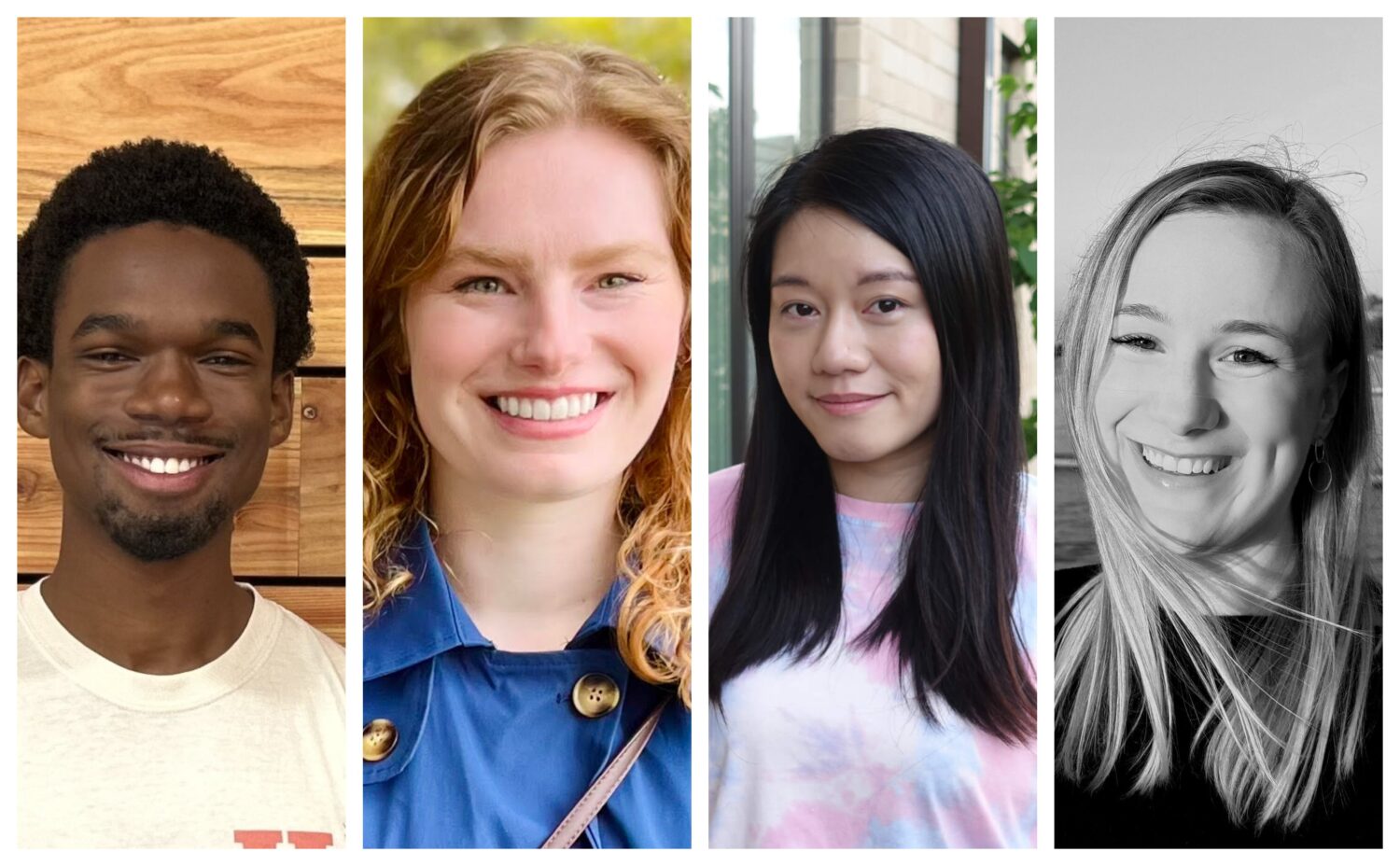
Special promotional content provided by the University of Wisconsin Center for Healthy Minds
Researching Well-Being in Depression
By Gabriela Valdivia, Research Specialist at the Center for Healthy Minds

I’m a clinical therapist by trade and I’ve had the itch to work within the field of psychological research. The Behavior, Biology and Well-Being Study (BeWell), at UW–Madison’s Center for Healthy Minds, provided the perfect platform and opportunity. Now as a CHM Research Specialist on the BeWell team, I feel lucky to be a part of a large, unique study and have learned a lot through conducting this research. I want the broader Madison community to know how easy it is to contribute to helping our team understand tools to promote well-being in depression. I recently sat down with some of my research teammates, to ask them why they are excited about the study and collaborate on providing information for Madison365 readers!
Wendy, tell us why you are excited about the BeWell study.

I have a background in psychology and education research and am passionate about doing research that could make a difference in people’s lives. The most rewarding part of my job is receiving feedback about how participants feel the Healthy Minds Program app has improved their well-being.
What is the BeWell study and what are you hoping to learn?
We are trying to study the impact of the app, which focuses on mindfulness and mental exercises integrated into daily life. The approach used in the app is similar to integrating physical exercise in daily life as a part of healthy living. We are doing this research because we believe it will help us understand the connections between our mind, body and well-being. Of particular interest is how meditation and mindfulness-based activities can help the spectrum of depression symptoms. We think that when people practice mental exercises during daily life, they may be able to change their physical and mental health and overall well-being. We are collecting data so that we can study changes in signs of stress and depression in peoples’ minds and bodies.
What do participants have to do and what is the time commitment?
This is a remote study, so tasks can all be completed remotely in the comfort of your own home. As a participant, you would complete surveys and a clinical interview, then use non-invasive, simple methods to provide biospecimen samples. Most of the tasks will be done in the first month, with our team following up with each participant 3 months later. In total the study will run for approximately 4 months.
Who are you looking to participate in the study?
We are inviting anyone between the ages of 18-65 years of age, who also have no significant experience with mindfulness or other forms of meditation. We’d like to recruit a diverse range of participants in order to accurately reflect the demographics of the United States. We believe representation is important because we want the outcomes of this study to benefit communities of color.
Canaan, what interests you most about BeWell?

I am interested in the investigation of meditation and positive mental health outcomes, especially in underrepresented populations. It makes me proud to be a part of a team that supports so many people living with depression through our app and I am excited to find out the results of such an ambitious study.
What are the benefits of participating in the BeWell study?
Based on previous research, we are hopeful that mindfulness-based activities, including the Healthy Minds Program, may have a positive impact on depression and other mental health concerns- and your participation may help extend the benefit to other folx in your community.
We can compensate each participant up to $265 dollars for completing all aspects of the study.
Why is this research important?
Tools that are beneficial to mental health can sometimes be inaccessible. We are hoping that through this research we may unlock a door to help those who have limited access to mental health resources add to their therapeutic toolkit. Well-being is a skill that can be learned and the Healthy Minds Program app is a free, accessible tool. With digital platforms on the rise and more than 85% of adults owning smartphones, we’d love to take advantage of this modality to increase mental health and well-being resources for all.
Ellen, what inspires you about the BeWell study?

I’m inspired by the possibilities that our study has to address inequitable access to mental health care through mobile-health technology.
Could you tell us more about what is innovative about the BeWell study?
This study is currently one of the largest of its kind. It is a study that is recruiting nationwide, with a target sample size of approximately 1,350 participants. There are so many variables to it; from the clinical interview, to the bio samples we collect, to the activities that each participant is prompted to engage in through the Healthy Minds Program App. This is a completely remote study that you can do from the convenience of your own home.
What are the barriers or challenges involved in a study like this?
As researchers, it has been challenging to recruit participants from all 50 U.S. states. Also, many people may not realize that we are a team of about 30 researchers working on this project. We monitor and interact in some way, shape, or form with each and every single participant who engages in the study. We take this work seriously and deeply care about the people we connect with.
As a participant, sometimes doing a remote study like this may feel confusing, because there are many steps and each step is done at your own pace. However, rest assured that our team is here to answer any questions and guide participants through each phase of the study. We also have a direct phone line, in case participants would like to speak with one of our team members.
Caroline, tell us more about your interest in the BeWell study.

Mindfulness and meditation training has been shown to promote well-being but it is difficult for many people to access this training due to cost and the limited availability of trained professionals in their area. As most Americans own a mobile device, mobile apps provide an exciting opportunity to deliver mindfulness and meditation training to more people in a way that is standardized and cost-effective. It is exciting to be a part of a research study that is rigorously testing this new form of delivering mindfulness and meditation training to better understand how to make this training most effective. By recruiting a diverse sample of participants from all across the United States, we will be able to be more confident that any findings we have are generalizable.
How can participants learn more and sign up?
Visit the BeWell study welcome page to view a short video and description of the study, then answer the screening questions. You will learn of your eligibility within a week after completing the screening surveys. Please email us at [email protected] if you have any questions about the study.
###
About the Center for Healthy Minds
The Center for Healthy Minds at the University of Wisconsin–Madison is a global leader in conducting rigorous scientific research. CHM aims to cultivate well-being and relieve suffering through a scientific understanding of the mind, with a vision of a kinder, wiser, more compassionate world. To learn more, please visit centerhealthyminds.org.



